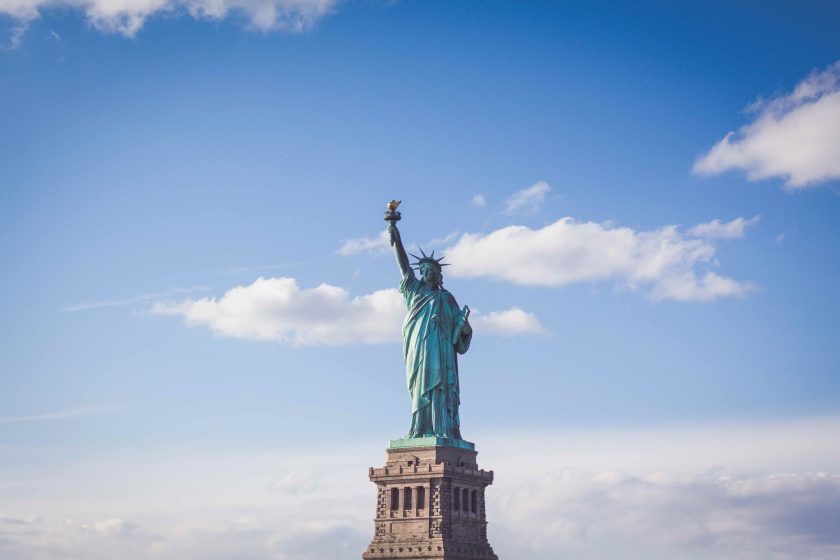It’s been several years since I last lived in the US now. From my first extended stay abroad (in Germany), I began to take notice of the little things that are uniquely American, but that, as Americans, many of us never think twice about. Here are the ones that continue to strike me the most now, even so many years later:
Reflexive friendliness, greetings, smiling (among strangers)
Americans have customary greetings: “how is it going”, “how are you doing”, or “how is your day”. The customary response is “good”. To say anything else would be strange, unless you were being asked the question by an intimate friend, staring deep into your eyes.
When traveling abroad, you can typically distinguish Americans by their outward friendliness and readiness to smile or laugh. For some people from other cultures it comes across as disingenuous. Being myself American, I spent a lifetime reading these behaviors and I know that they are just reflexive, and not intended to be disingenuous or fake. I don’t think much about it one way or the other, but it is often noted – even misunderstood – by people from other cultures.
20% tip
Americans tip heavily compared to anywhere else in the world. In US restaurants, 15% is widely understood to be the bare minimum, and 20% is very typical. We also customarily tip for a whole host of other services: delivery, hair dressing, taxis, doormen. Tipping is so ingrained in the US that restaurants are allowed to pay staff below the legal minimum wage because it is wholly expected that tips will make up the rest.
In many other parts of the world, simply rounding up to the nearest full dollar amount is acceptable/expected (even if it ends up being just 5% or so of the bill), and in certain countries (Korea, China, Japan and Switzerland to name a few) to tip any amount is considered unnecessary if not rude.
Consumer credit/debt
Compared to all of the places I have lived, I have found that Americans are among the most eager to spend on credit, and also to finance things (from major purchases like cars to less substantial ones like televisions and appliances).
To spend on credit cards as an American is not wholly irrational, as US credit cards come with some very good rewards programs (think getting 2-4% of the value of your purchases kicked back to you in rewards) and fraud protections, and many people don’t carry a balance so don’t pay interest. However, the money for those great rewards programs does have to come from somewhere. In the US, interchange fees across the card processing networks average 2%. In the EU, interchange fees are legally capped at 0.3% for credit cards and 0.2% for debit cards.
Free water
I remember, when I first came to Germany, thinking that every restaurant was running some sort of tourist scam because I couldn’t get a free glass of water. Though it is not a universal, it is typical in many countries not to offer free water with a meal. In the US, on the other hand, it’s extremely rare (maybe impossible) to find a place (from a fancy sit-down restaurant to a fast food chain) that won’t give you a glass (or paper cup) of water for free.
Writing the date weird
There is not much to be said about this one. Americans write the date “[month]/[day]/[year]”. The rest of the world is “[day]/[month]/[year]”. People in tourism-related industries know this and might expect an American to write in the American form, so if you are an American traveling outside the US you should really just do something unambiguous like use the written month name (I’ll usually write something like “10 Feb. 2020”).
Refrigerating Eggs
Americans traveling for the first time outside the US are usually surprised to find that eggs – whether in the supermarket or in the kitchen – are left out of the fridge. It turns out that there are meaningful differences in how eggs are produced and processed in the US that make it such that eggs really should be refrigerated there, but the practice is not typical in the rest of the world.
Over-sharing/TMI
Americans tend to openly share much more of their personal life with friends and even strangers than people from other cultures. Whether this be matters of health, sex, family, or anything else that might be considered very intimate/sensitive in other cultures, it is not uncommon for Americans to spill these things just to vague friends or relative strangers at the bar, office, cafe or anywhere else.
Not talking about money
There is one area where Americans overwhelmingly do not overshare, and that is as it concerns finances. While most Americans will readily discuss money in an abstract way, any more personal probing (“how much does your job pay you?”) will make most Americans extremely uncomfortable. This is not a cultural universal: I have found that in most other parts of the world where I have lived, people are far more open to discuss finances even in a very personal degree.






